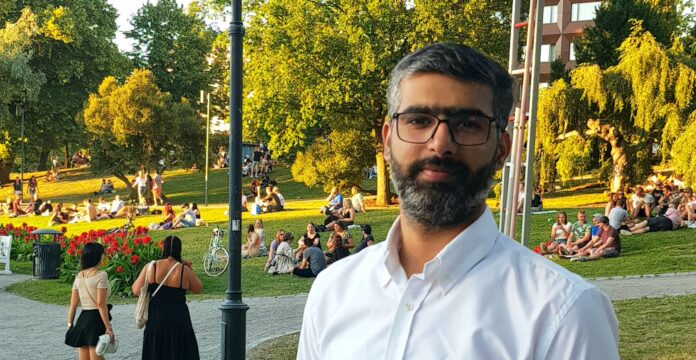Indeed, I encountered several good examples of how companies are engaging students in their development projects. Usually, these are course projects, internships and thesis studies that revolve around practical issues, thereby allowing students to enhance theory with practice by combining the latest knowledge from different organisations with what they’ve learned in the classroom. Companies benefit from fresh ideas and hope to attract a skilled and dedicated workforce, whereas students obtain practical real-world experience. It’s a win-win, right?
Antti Mäenpää is working in EU funded LARS (Learning Among Regions in Smart specialisation) project in University of Vaasa. He is studying regional cooperation in quadruple helix (company, university, public organisations, NGO´s) setting and has also participated in the development of connectivity-model, which is used in LARS project to study regional cooperation in several EU regions.
But what about universities? We usually think that universities benefit from this cooperation by allowing them to say that they work on real-life issues and are both current and useful organisations for developing the region/world. What we’re not always recognising is the knowledge exchange taking place during these interactions. And I don’t mean between companies and students, but between companies and universities through students.
Indeed, students bring their work experience into university life. Their knowledge of products, processes and people is exchanged with other students and staff during teaching activities. This knowledge adoption usually culminates during thesis work, as professors/evaluators learn a lot about the case study organisations from both the practical issues and related theories. In other words, teaching turns into the basis for research as our students bring potential case studies to our doorstep!
We may sometimes forget that students are the ones who deliver quite a substantial amount of our knowledge into practice. In addition, they not only link practice and theory, but they also bring people together. This is simply because our future experts are moving through work places and even cities during their studies, and we don’t always think about or give them credit for helping to enhance regional thinking.
Students indeed act as our agents of change (a very fitting slogan for the university, btw) and assist in marketing us. In particular, international students are in an excellent position to deliver knowledge from our university and regional companies into the wider world, if we simply give them a tour and present what the region can deliver. This idea received nods from both university and company participants during our LARS focus group meeting, where we presented our results regarding regional cooperation.
All this is nice, but how can we enhance regional development? Surely, individual student projects are too small to foster change? Well, perhaps instead of focusing on what companies do, we should really look at how companies actually do what they do. Larger companies have engaged in substantial development projects through strategic and simultaneous thesis coordination, for example, they have developed entire production lines through individual course and thesis work. If we apply this strategic engagement of students to public organisations and smaller companies, we may see even more changes in the region.
But why focus on public organisations at all? Well, according to the findings of our study, many public organisations have neglected the possibility of working with universities and have only discovered the potential after hiring an intern, who has opened their eyes to the benefits of student and university engagement. As a result, they have come to see the same value as companies do in keeping ideas flowing by having students bring and share knowledge.
Indeed, we already have an educated group of potential innovators in our midst. However, there is a need for more coordination regarding practical cases, so that willing students will be able to discover interesting projects more easily. Our potential developers are simply waiting to make a change. If we can connect the dots, it wouldn’t just be a win-win anymore, it would be a triple whammy.
All the ideas presented in this blog post came from our excellent university, company and public organisation representatives who have been engaged with the LARS project. Therefore, I would like to express my gratitude for their valuable efforts.
*For more information on LARS, visit: https://www.lars-project.eu/



